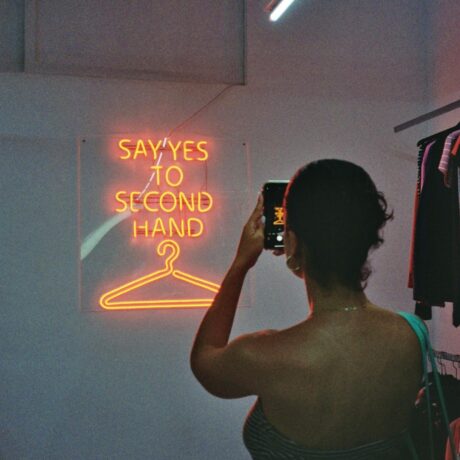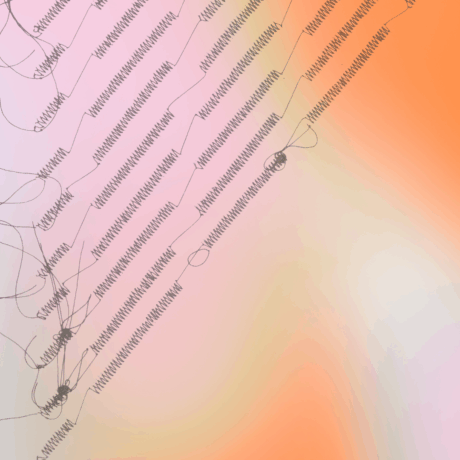The Burden of Excess: It Falls on Her
When we began researching Kantamanto Market, my partner Branson and I set out to become fluent in the invisible. Whose voice is not being heard? What stories are not being told? Who is most vulnerable? So often the answers to these questions involve a group of women, and Ghana’s secondhand clothing economy is no exception. In the case of Kantamanto Market it is the kayayei who labor in the shadows. Kayayei (singular: kayayoo) are female head porters, as young as eight years old, who can be hired in Accra’s markets to carry just about anything, for anyone. In the case of Kantamanto, these young women are hired to transport bales of secondhand clothing from importers to retailers, from retailers to storage, from retailers to consumers, and everywhere in between.
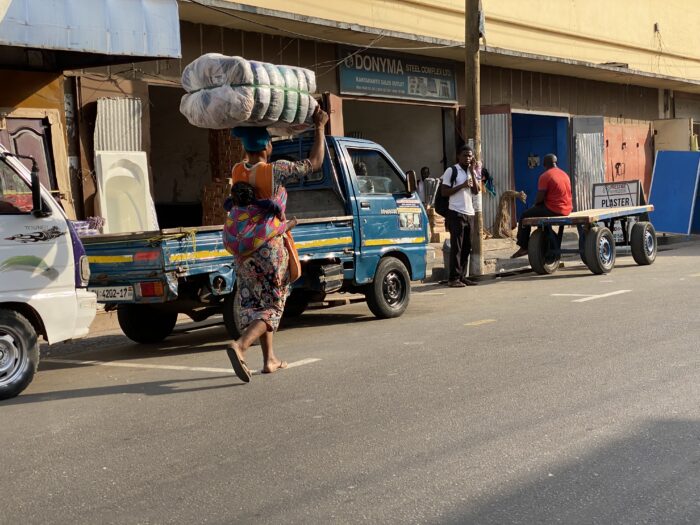
Head-carrying is an “African” “tradition” that has become romanticized as a symbol of women’s strength. Images of women carrying things on their heads while also carrying babies on their backs often summon wonder and praise; “How does she do it?” Yes, these women are physically powerful, but they are not empowered. When we celebrate their strength with little or no recognition of the pain endured, we dehumanize them. We objectify these women and fetishize their labor.
So please pause & imagine:
You are carrying a bale of clothing on your head. It weighs 120-200lbs. Your baby is wrapped around you, her face pressed into your back. You are weaving in & out of the market trying not to hit anyone, or shift your weight, or roll your ankle. Standing still allows the pain to sink in so you walk as quickly as you can. Everyone is busy selling or shopping. Clothing flies across the aisles as sales are made so no one notices that you are coming. You yell for them to move and you reach up to hold the bale in case someone bumps it as you squeeze by. You brace yourself – you cannot let the bale fall backwards. After a mile you reach your destination, stand firm, let go, and throw your head forward so that the bale can drop with a thud. You earn 3 Ghana Cedi ($0.50), secure your baby & make your way back through the market to fetch another load.
How do you feel? What do you feel?
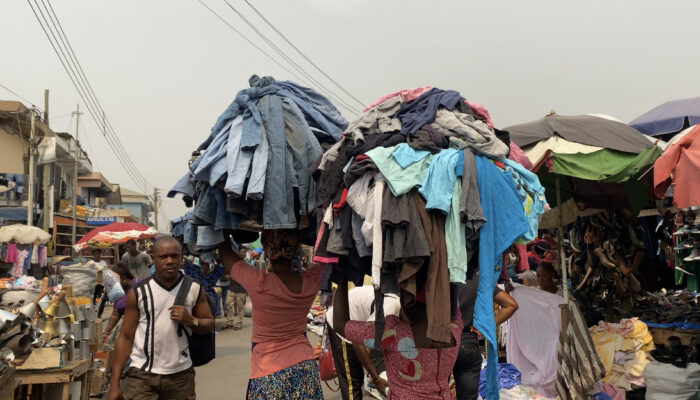
Yes, at certain weights head-carrying can have positive impacts on the body, BUT there is a threshold. Kantamanto’s kayayei perform labor that is literally backbreaking and when a bale falls, it falls hard, a solid brick of fashion – breaking limbs, crushing feet or worse. Kayayei die when they take on loads that are too heavy for them, their necks breaking under the weight of the bale. A bale of clothing. We are past the threshold.
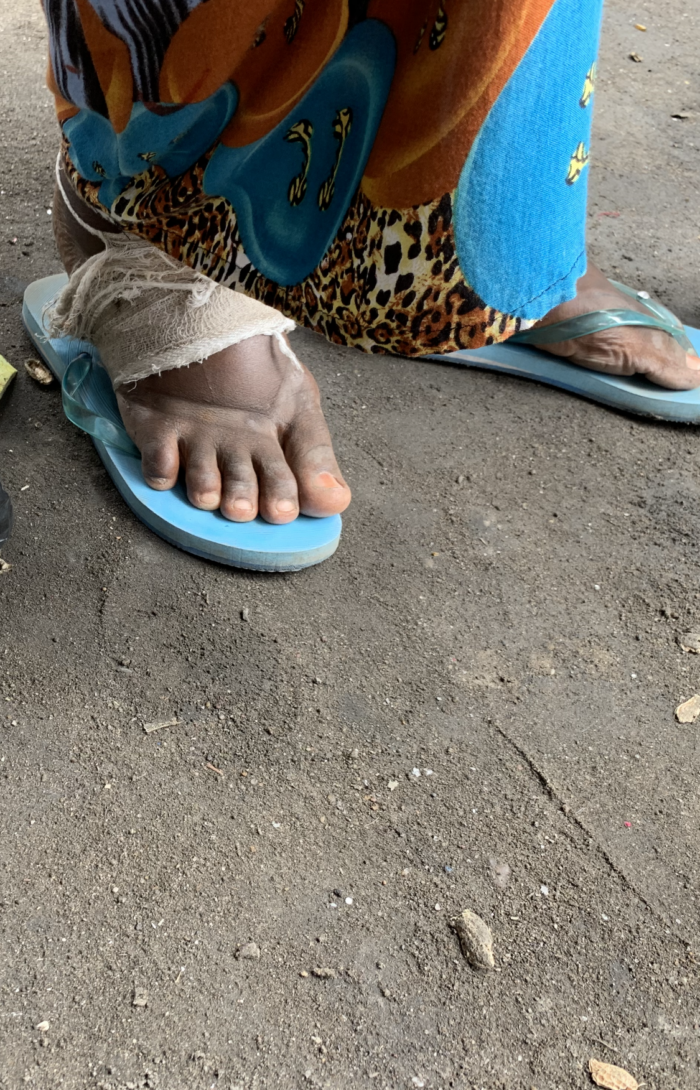
The overwhelming majority of Kantamanto’s kayayei are migrants from Northern Ghana with no safety net and without access to healthcare. On International Women’s Day some of Accra’s kayayei attended a health screening where they received the Hepatitis B vaccine because when they are injured, and are unable to work, these young women end up sleeping on the street where many become victims of theft and rape.
Bales of secondhand clothing are head-carried throughout Kantamanto because the physical structure of the market does not allow for an alternative. What these women do is absolutely essential to Ghana’s secondhand clothing economy, which makes their work essential to the fashion industry’s global waste management system.
I recently listened to an episode of The Ezra Klein Show with Rebecca Solnit and she said something that really resonates with me. Speaking about Harvey Weinstein and the Me Too Movement, Solnit said that when we say “nobody knows, that means that everyone who knows is nobody.” The kayayei are not nobody. These women are very aware of the pain they are enduring. It is our job to listen to them.
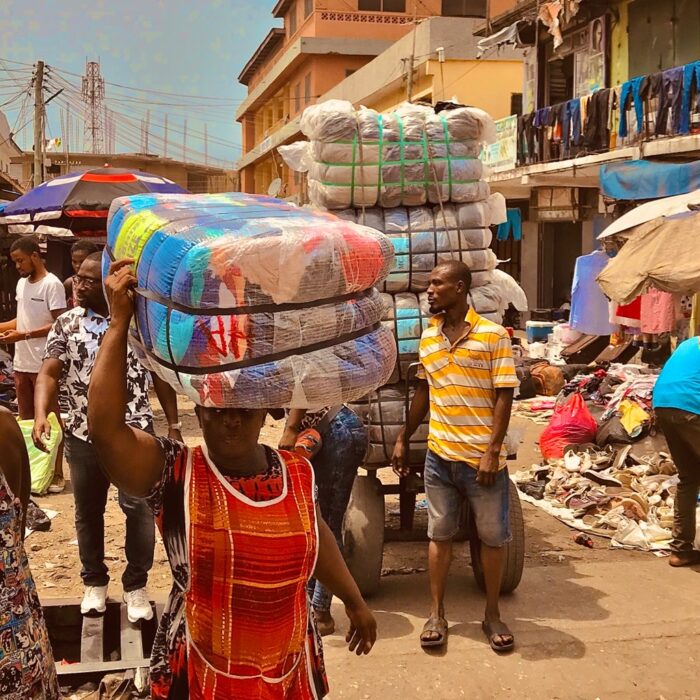
We will be engaging the kayayei in a series of initiatives beginning with improving their access to healthcare. Over the course of this year we are supporting health screenings, healthcare registration, education on sexual health and women’s rights as well as chiropractic analysis and treatment for a selection of Kantamanto’s kayayei. Consider that there is currently more research and media on how staring at our phones – texting and scrolling – impacts our skeletal structure than there is research on the health impacts of head-carrying. It is time to change this. It is time to give the kayayei a voice.
If you would like to support this effort please visit https://deadwhitemansclothes.org/donate or reach out at lizandbranson@theor.org
Banner image by @TheSlumStudio





